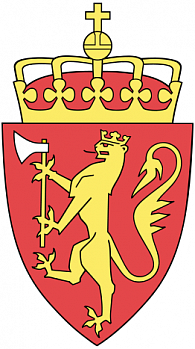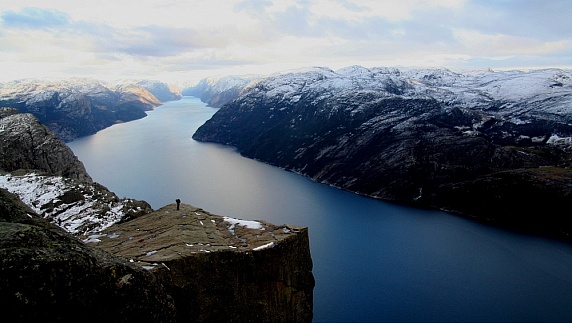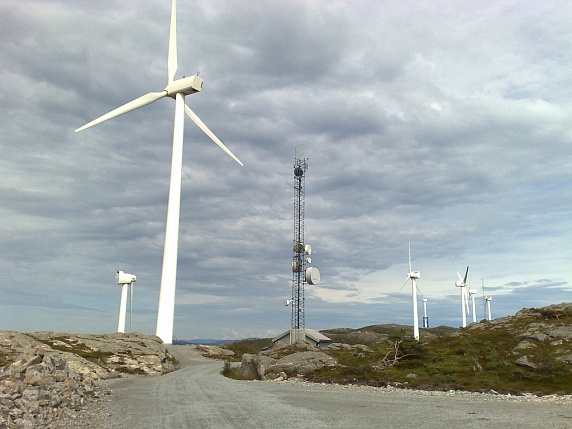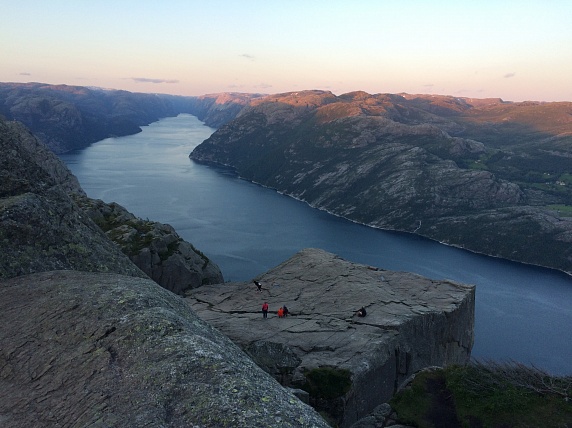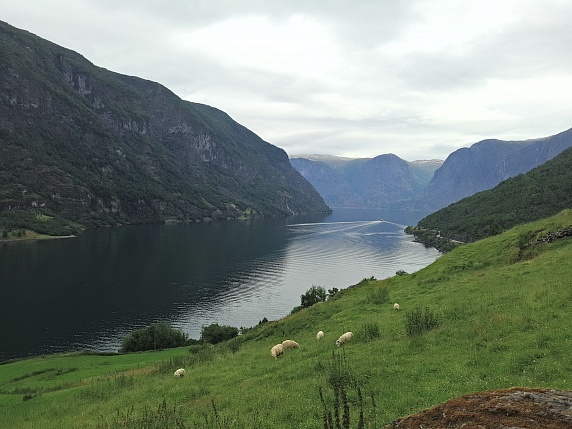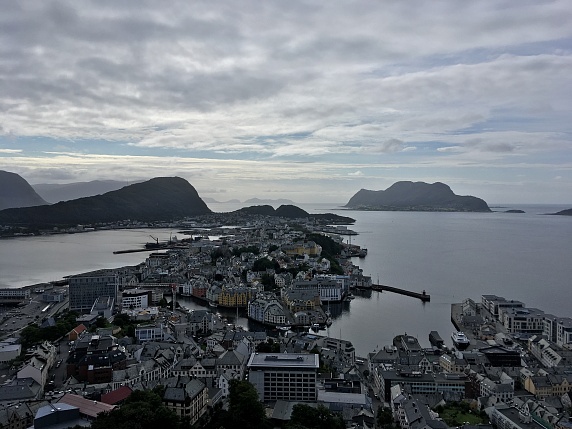 the Kingdom of Norway
the Kingdom of Norway
Foreign Minister Sergey Lavrov’s remarks and answers to media questions at a joint news conference following talks with Foreign Minister of the Kingdom of Norway Ine Marie Eriksen Søreide, Kirkenes, October 25, 2019
Ladies and gentlemen,
First of all, I would like to thank Foreign Minister of Norway, Ine Marie Eriksen Søreide, for inviting me to visit Kirkenes in order to participate in celebrating the 75th anniversary of liberating Northern Norway from the Nazi invaders. Taking this opportunity, I would like to once again express my sincere gratitude to our Norwegian colleagues for treasuring the memory of the Soviet soldiers who fell on Norwegian soil during WWII and the exemplary upkeep of military burial sites and memorials. Without exaggeration, this is an example for all Europe.
As you are aware, we are also celebrating the 70th anniversary of the Treaty between the Government of the Soviet Union and the Government of Norway on the Soviet-Norwegian Border Regime and the Procedure for Resolving Border Conflicts and Incidents of 1949. This border is almost 700 years old. It is the oldest border in Europe and has never been tarnished by armed conflicts between our peoples.
Today, we spoke unanimously about the need to develop mutually beneficial cooperation in the interests of Russia and Norway and our peoples, despite the well-known contradictions and the generally complicated situation on our common European continent.
Our political dialogue is going well. Top-level contacts have resumed. Regular consultations are being held between the foreign ministries. Relations between our respective defence agencies have resumed as well. The sectoral cooperation entities in the economic sphere are working successfully. Cultural interaction has been notably up.
With regard to international topics, we focused particularly on Euro-Atlantic security. As I mentioned, contradictions and not so positive trends are piling up here. We are concerned about NATO’s persistent efforts to move its military infrastructure eastward ever closer to Russia's borders. This has an overall adverse effect on the situation in the Far North. We referred to the proposals that Russia had repeatedly made to NATO members, including measures to improve stability in the Baltic and the Euro-Atlantic region in general based on the solemn declarations adopted in the 1990s, on the need to ensure indivisible security in the Euro-Atlantic, where no one would strengthen their security at the expense of the other party. We referred to the specific initiatives in a number of fields and aspects of Euro-Atlantic security, where Russia suggests (so far without a response) beginning a substantive and professional dialogue with our NATO colleagues.
During the talks, Madam Minister confirmed that the “basic policy” that Norway has been pursuing since the Cold War remains fully relevant. We hope that this will strengthen confidence and security in the North European region.
Both sides emphasised that the disagreements and discrepancies would probably always be there, but we would like to reduce them. Most importantly, they should not impede our interaction in the spheres where our interests overlap. This applies to the Arctic Council and the Council of the Barents/Euro-Arctic Region, which Norway presides over beginning this month.
We talked about the situation in Ukraine. Clearly, our positions are not the same here. Our Western colleagues unanimously see the main problem in the fact that eastern Ukraine and Crimea vehemently rejected the results of the armed anti-constitutional coup, which, in fact, was encouraged by some of our Western colleagues, while some other parties got reconciled with it. Such connivance on the part of our Western colleagues regarding the initiators of the anti-constitutional coup has led to a situation where, unfortunately, neo-Nazis remain rampant in Ukraine today. We hope that the situation in eastern Ukraine will be resolved on the basis of the Minsk Agreements. We hear regular confirmation from President of Ukraine Zelensky that he is willing to do so. Let us hope he succeeds in doing this. We are ready to do our fair share to promote the implementation of these agreements involving Donetsk and Lugansk.
We discussed the situation in Syria putting an emphasis on the developments in its northeast. We spoke about the implementation of the Memorandum of Understanding between the Russian Federation and the Republic of Turkey, which was approved in Sochi on October 22. We also talked about the UN preparations for the work of the Constitutional Committee. As you know, Norwegian citizen Geir Pedersen is the UN Secretary-General’s Special Envoy for Syria.
We confirmed our high assessment of Norway’s efforts to organise domestic dialogue in Venezuela. By and large, this reflects the long-standing traditions of Norwegian foreign policy that has always been striving to mediate in settling different conflicts in Asia, Latin America and Africa. The international community particularly appreciates the role Norway played in helping to reach the Oslo Accords on a Palestine-Israeli settlement. This was long ago but they have not lost their importance. Regrettably, now the Oslo Accords, the Madrid Principles and the UN Security Council resolution on settling the Palestine-Israeli conflict are being subjected to tough revision. Attempts are being made to replace these international multilateral legal documents with some behind-the-scenes secret deals. I believe this is very dangerous. We must work together to fully implement the earlier agreements concerning the Palestinian question and for that matter all other problems to do with politics in the world.
We discussed our cooperation in the UN, in part, in the context of Norway’s application for the status of a non-permanent member of the UN Security Council.
In conclusion, I would like to return once again to our common heroic past and to say that I hope that the invaluable experience of allied relations and cooperation against criminal ideology, which was amassed during WWII, will be much in demand today when it is so essential to pool our efforts in countering global threats and challenges that can only be done together. Naturally, this applies (maybe primarily) to the task of building a system of equal and indivisible security in the Euro-Atlantic region and Eurasia, which was proclaimed at the OSCE summit in Astana in 2010.
I invited my colleague to visit the Russian Federation at her convenience. I hope this will happen next year.
Question: Russian Foreign Ministry officials declared on the eve of this meeting that Norway’s plans for the development of its armed forces are obviously anti-Russian and that Moscow hopes that Norway will present its arguments and explain why active military preparations near the Russian border are going on. You mentioned the so-called basic policy. Is this an adequate explanation or did you expect other arguments?
Sergey Lavrov: We do not strive for satisfaction in discussing these issues. We know it is impossible to be fully satisfied in human life but we have discussed openly and professionally the security situation that is taking shape in the northern part of Europe. We asked our partners questions related to the development of NATO activities on the territory of Norway. This evokes our concern because Norway is our neighbour and what is going on creates a risk of militarisation of the Arctic, which is vigorously opposed by all members of the Arctic Council. Madam Minister presented her arguments, including NATO commitments but reaffirmed that “the basic policy” remains fully topical. We hope that this will be the case. We noted the official statement made by the Deputy Foreign Minister of the Kingdom to the effect that Norway does not consider Russia a threat to its security. I believe fairly active contacts between our defence ministries, which were resumed this year, will help to intensify trust. We encourage them in every possible way.
Question: What is required to resolve the Frode Berg case? When will he be able to return back to Norway?
Sergey Lavrov (speaking after Ine Marie Eriksen Soreide): I can only add that Frode Berg was convicted for spying. He applied for pardon and that is being considered now. I hope this won’t take too long. You will learn about the result.
Question: Northern Norway has apprehensions about the Russian military potential on the border. What could you say about this?
Sergey Lavrov: Russia has never planned and does not plan to aggressively deploy its armed forces anywhere, least of all on the border with Norway. That said, we are watching with concern the qualitative and quantitative buildup of NATO presence in Norway. Airfields are being upgraded for NATO needs and port terminals are accommodated to receive American nuclear submarines. There are already several hundred US troops there. The British are also going to be based there. We must consider this in our military planning in order to prevent these threats from being implemented. But I assure you that we are doing the absolute minimum required to keep calm. Like Norway does not consider Russia a security threat, Russia does not consider Norway a security threat either. Regrettably, sometimes everything depends not on the intensions of a specific side but on the developments in this or other alliance of which it is a member.
Question: Is Russia ready to guarantee the observance of the rights of the Kurds and the civilian Kurdish population during their withdrawal from the Turkish border? Is Russia ready to discuss the creation of security zones in the north of Syria under the auspices of the UN?
Sergey Lavrov: As for the implementation of the memorandum that was approved by President of Russia Vladimir Putin and President of Turkey Recep Tayyip Erdogan in Sochi on October 22, the rights of all sides that fulfil the signed agreements will be respected. I would like to remind you that these agreements were supported and endorsed by Syrian President Bashar al-Assad as well as the leader of the Kurdish self-defence forces.
As for the initiative to create a security zone in the northeast of Syria in line with a UN Security Council resolution, we still do not really understand what this is all about. This initiative was first made by the German Defence Minister but it was criticised by other members of the German Government. Later on, NATO Secretary General Jens Stoltenberg began coming out with strange statements saying that some NATO members support this idea but others were not too happy about it. If NATO wants to assume this job it is clear that nothing positive is going to come of it. If it is not broken do not try and mend it. There are Russian-Turkish agreements that are supported both by Damascus and the Kurds. They must be fulfilled.

